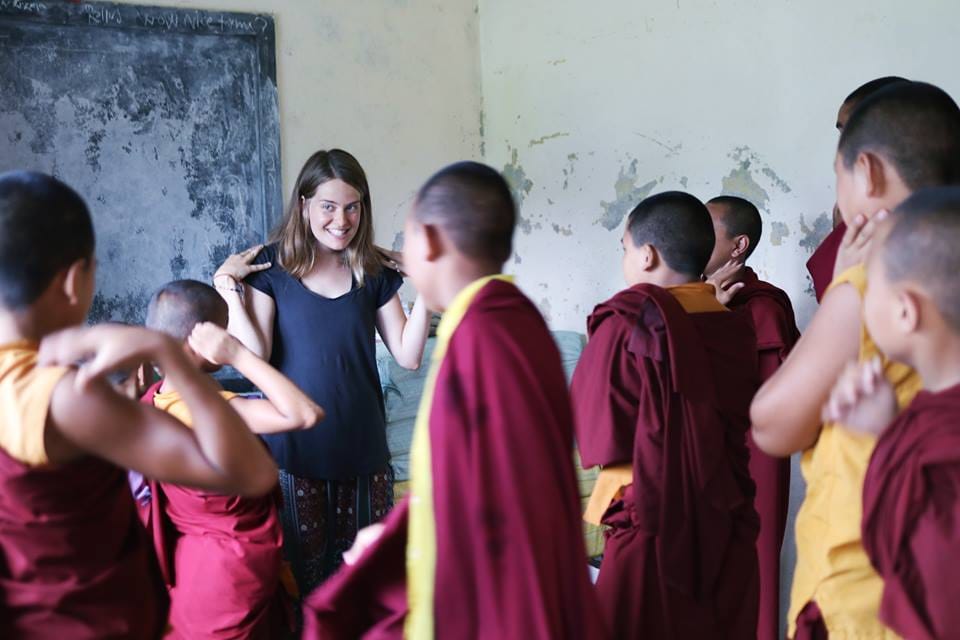
In Nepal, there were around 1.4 million students enrolled in grade one in the year 2005. However, in 2015 only 400,000 students took the School Leaving Certificate (SLC) exams, with less than 200,000 students graduating with their SLC: approximately 1 million students dropped out before Grade 10 and 1.2 million students did not graduate from secondary school.
Almost two-thirds of students in Nepal attend public schools, with a significant number failing to graduate at the end of Grade 10 and almost 90% of those failing the SLC exams do so because of English or Science subjects. Public schools in Nepal do not have sufficient resources, both in terms of manpower and infrastructure, being unable to hire and retain teachers, nor ensure adequate training prior to hiring and ongoing training for their teachers. In remote areas where there are not many teachers, primary level teachers are often teaching secondary level students, all of which severely affects and compromises the standard of education in Nepal.
Education in Nepal is particularly theoretical in its nature, with more emphasis placed on learning theories and facts from textbooks than developing practical knowledge. For some adults, working as a teacher is considered to be a last resort for those who cannot get into other fields of work. In addition, due to inexperienced and untrained teachers, students spend the majority or all of their time repeating and memorizing in lessons, rather than developing their understanding and problem solving skills.
With a focus on higher grades and academic excellence, rather than the overall development of students, little or no attention is given to extra-curricular activities like sports, art, craft, yoga or physical and mental developmental activities. The children, therefore, do not have the opportunity to find a form of expression they enjoy to explore their own skills and interests.
Many children in Nepal suffer from one or more form of disability. The 2015 constitution says that education is a fundamental right and provides free primary and secondary education for such children, through braille and sign language. However, nearly a third of these children are unable to attend school and special education schools in Nepal often lack proficient teachers, accessible learning materials, suitable infrastructure and a supportive classroom environment.
The right to education exists across the world, irrespective of gender, race, religion, disability or financial status. However, in Nepal these educational rights are not always supported and discrimination and poverty stand in the way of nearly half of the population attaining a basic level of literacy through education. The literacy rate for across the country is below 60%, with the rate below 50% For Nepali women, due to the barriers that poverty and a patriarchal society present. Literacy rates are even lower in marginalized communities, due to discrimination, poverty, the need for children to work to support the family and poor education provision and resources.
The goal of the Teaching Program is to ensure that all people in marginalized communities have access to specific, constructive and effective teaching and learning provision. The project aims to break the stereotypical method of teaching that is popular in schools of Nepal. Engaging marginalized people in recreational activities, such as sports and yoga, as well as creative activities, can also enhance their mental and emotional wellbeing. For Nepal to develop as a nation within the global economy, it is essential that the educational needs of children and the lack of breadth in the education system is addressed, to produce independent and self-reliant members of society.
VIN has a range of projects which promote learning in the community or within other marginalized groups. We are looking for volunteers and interns to support and develop community teachers, many of whom are untrained and unqualified, assisting in lessons, activities and workshops to benefit children and teachers alike.
How does VIN promote the Teaching Program?
VIN has been implementing the following projects to promote Teaching Projects in different areas of Nepal:
Experience Buddhist culture and practice through Teaching English abroad to monks and nuns
You do not have to be a Buddhist for this program: just come with a smile, your desire to teach and learn and you will feel right at home! Volunteering as an English teacher to children in a Buddhist monastery and nunnery is a deeply rewarding and unforgettable opportunity to give back. Take advantage of the Teaching English abroad opportunity and explore an amazing experience.
Make Dreams Come True by Teaching English abroad at a Community School
Discover what it is like Teaching English abroad in community schools in Nepal as a volunteer or intern. As a volunteer teacher of English, you will be given an active role in the classroom. You’ll put your valuable skills to use by supporting students eager to learn English from teachers like you.
Empower Teachers of Nepal through Teacher Development
Do you possess not only the desire but also the skill of a truly experienced teacher? If so, this is your opportunity to share your gift and skills with fellow teachers in Nepal. Perhaps the most significant key to a student’s success is the quality of teaching and, by volunteering to develop teachers through training and various approaches to teaching and learning in Nepali community schools, you will help empower a body of teachers for generations to come.
Teach Basic Computer Skills – Bring Digital Information Technologies to Nepal
Help spread the power of essential computer skills through VIN’s teaching Computer Science Program. For most of us, using Microsoft Word, Excel, or even everyday tools such as Facebook, Google and Skype may be straight forward and something many of us take for granted. However, for marginalized communities in Nepal, it means connection to the world beyond. As a Computer Science Volunteer Teacher, you will help open new doors of hope and opportunity through information and communication technologies.
Inspire Creative Expression with Arts and Crafts
Do you love working with children? Do you find joy seeing their creativity come to light as they learn new means to express themselves? If so, volunteering as a teacher of arts and crafts is for you. As a volunteer you will work directly with children and inspire them to reach their full potential through creative self-expression, allowing them to begin to connect and see the world in new ways.
Give Voice by Teaching the Hearing-Impaired Children in Nepal
Are you fluent in sign language? Do you have a background working in special education? This is your chance to utilize your skills and give a voice to hearing-impaired students in Nepal. Together we can empower the hearing-impaired children of Nepal by giving them the training and resources they need to learn and grow through life.
Elevate Mind-Body Harmony by Teaching Yoga
Do you love the power of yoga? Is it a practice you cannot live without? Would you like to share your passion for yoga with others? Through VIN’s Yoga Program you can help bring the timeless art of mindfulness to the people of Nepal. As a Yoga Teacher volunteer, you will not just be teaching posture techniques: you will enable others to find their mind and body harmony, elevating their mindfulness and allowing them to face the stresses and pressures of today’s world.
Share Your Passion for Sports with Children of Nepal
Do you love playing sports? Do you enjoy working with children? As a Sports Volunteer you will help children and underprivileged communities gain physical and mental health through the fun of sports. You can teach any sport you like to help underprivileged children and communities of Nepal.
How has VIN responded to the educational needs of marginalized communities in Nepal?
The basic necessity and right to education are foundations of VIN’s work. Without education our ultimate objective to empower marginalised communities cannot be met. Since 2007, VIN, with the help of local and international volunteers, has operated a program of work to develop teaching and learning within the Jitphurphedi community of Kathmandu. In addition, complementary work at local Buddhist monasteries, nunneries and a specialist care unit for deaf children have been running beside this.
VIN’s teaching programs support the overall development of the community and the long-term goal of independence. Our teaching involvement has grown considerably over the years, from our initial focus of teaching English language. At present, VIN is implementing further projects that will support the holistic development of the children in Jitpurphedi of Kathmandu and Taluwa, Thulachhap & Bhadaure of Okhaldhunga and Okharpauwa of Nuwakot, including Teaching Sports, Arts and Crafts and Computer Science.

 Intern
Intern Donate
Donate Sponsor a child
Sponsor a child Partner
Partner Promote
Promote Fundraise
Fundraise Fellowships and staff exchanges
Fellowships and staff exchanges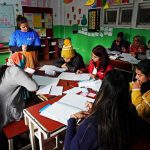
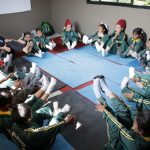
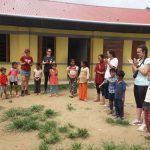
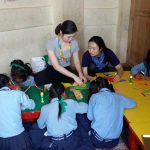

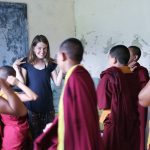
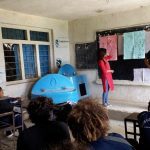
 Member of
Member of